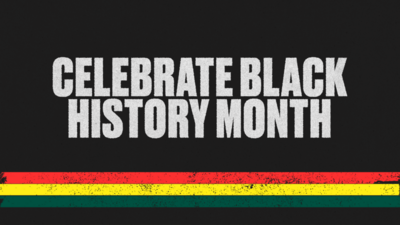
BY JOSH STERNFELD |
Tribeca Takes: Josh Sternfeld on Meskada
Buck up, young filmmakers! This NYU Film professor (and TFF 2010 director) talks about what it takes to get a movie made these days. Oh yeah, and there's Kellan Lutz.


For his backwoods crime thriller Meskada, which premiered at the Tribeca Film Festival this past spring, director Josh Sternfeld rounded up an enviable young cast, including Twilight's Kellan Lutz, Meryl Streep's daughter Grace Gummer, Nick Stahl (In the Bedroom), Rachel Nichols (Star Trek), and the always-interesting Norman Reedus.
But that's only half the battle. We asked the filmmaker to share his story as a means of inspiration for aspiring filmmakers out there: the film's five-year odyssey from idea to screen is not atypical these days, and Sternfeld takes us through his journey from 'Talking About It' to 'Actually Doing It.' Sound familiar? Read on...

Today is Sunday, November 21, and in nine days I will fly to Los Angeles, sleep on my friend’s couch, and attend the theatrical premiere of Meskada—the police drama I’ve spent five years making. The research and writing process took two years, I lingered in development another eighteen months, and finally, in February of 2009—long after the industry had written it off as a “great script that would never get made”—I sat in an Italian restaurant with my fiancée (now wife) and told her I was going to produce and direct Meskada that spring, for eighty-five thousand dollars. $60K I had recently inherited from a deceased relative, plus $25K, which was about half my life savings.
“Oh?” her eyes said. But wasn’t the budget two million dollars?
Well yes, that was true, but I would figure it out.
“Fair enough, sweetheart.”


But how to do it? Having made my first feature, Winter Solstice, in 2004, I was aware that making any film for this budget would mean massive headaches and sacrifice. Plus, I had written a police drama with many actors, locations, action and crowd sequences… it seemed totally absurd. Lucky for me, I had reached a Point of No Return. Too many lunches, too many meetings, and not nearly enough filmmaking—this had been my world, and I needed a change. It was time to make a film. In my mind, I flashed to Francis Ford Coppola’s interviews during Hearts of Darkness, the documentary made during his odyssey of Apocalypse Now. Coppola had proven to the world that if one augmented less money with more commitment and audacity, it attracted good fortune. I knew I wasn’t Coppola, but his advice was too true, too powerful to ignore.
So I simply began… well… pre-production. I made a private game of it, to see what line producers, actors, and film professionals I could persuade into this lunacy. Most laughed it—and me—off. But some read the script and came aboard, and with archangels Sig de Miguel and Stephen Vincent at Palmstar Entertainment, we were able to attract a couple investors, bringing the final budget to something (only slightly) less insane.

Ultimately, less money just means a filmmaker needs to be more resourceful and creative. It also puts a great challenge to the producers, cast and crew—because everyone needs to work together and put egos aside to make the day. Despite the challenges, the Meskada film set was one of the best and most memorable experiences of my career. I learned more on Meskada than on all my previous films combined, and I was consistently amazed by how well the team functioned. It was an incredible adrenaline rush to know we were succeeding, that the film was coming together.
Of course, the adrenaline of production always gives way to a new phase: post-production and working on a distribution strategy. I won’t add to the chorus of “new-media-this, digital-platform-that, and too-much-content-everywhere.” People want to see good stories on a screen—however large or small, or wherever the screen might be. The only thing required from a filmmaker is the belief they have a story to tell. I’ve stayed open to the different ways that people can see my films, and it’s made the distribution process easier and more fun.


Our premiere at the 2010 Tribeca Film Festival was an incredible experience, giving us a huge boost. And it’s amazing to see that what began as my crazy idea in an Italian restaurant… is now a film broadcasting in over fifty million homes, starting this Friday, December 3. [New York audiences, check out Time Warner Cable Movies On Demand.]
In addition to filmmaking, I’m also a professor at NYU film school. Every year I face a new class of young, enthusiastic artists, students whose passion I always consider inspiring for my own work. I try to teach them what I know about writing. I show them various strategies to shooting a scene. But more than anything technical, the best I can do is to guide them in cultivating courage and determination. Because at the end of the day, they’re the only necessary ingredients.

As many others can attest, and as I now know, a committed filmmaker doesn’t need money or connections to tell his or her story. The bridge separating ‘Talking About It’ and ‘Actually Doing It’ takes only a moment to cross, but requires every ounce of courage in the world. I’m proud that I crossed it.

Meskada opens Friday at Laemmle Monica 4 in Santa Monica and on demand via Comcast and Time Warner, among others.
Read more from Josh Sternfeld.
Watch the trailer: